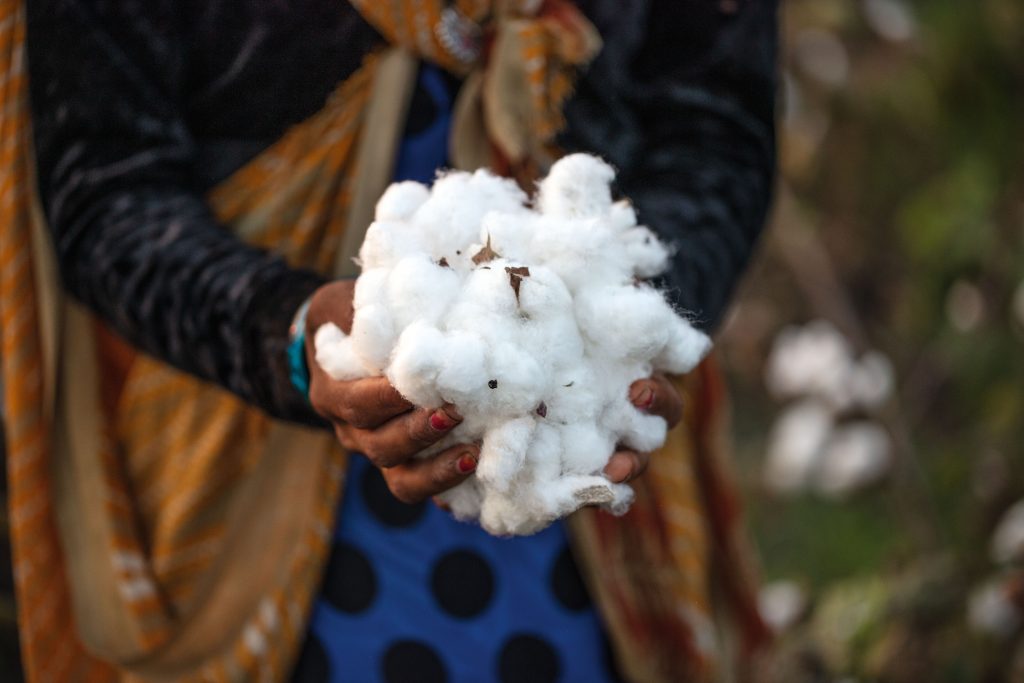The best sustainable and ethical menswear brands to add to your wardrobe
There’s a whole world of sustainability terminology and jargon out there, and we’re about to add a new one to your list – but you should definitely forgive us, because this one’s really kinda essential: regenerative organic.
Hold on, hold on: we know you’ve heard of regenerative agriculture, and are pretty familiar with organic (like when it comes to organic vs non-organic chicken, or the benefits of organic milk) – but what does regenerative organic mean and why is it so important?
Well, we’ve outlined the key bits below…
Why should we care about regenerative organic?
Farming is the solution to climate change.
Yep. Big Agriculture and intensive farming is responsible for 30% of carbon emissions, 70% of fresh water use, 60% loss of biodiversity and heaps of other terrifying statistics.
Industrial farming seemed like the way to feed the world after WWII. Until we recently realised that err… Actually… We need more and more herbicides and pesticides to grow less and poorer quality foods and if things continue in this direction we’re not going to be able to grow anything – at all.
Regenerative Organic farming has the power to reverse the damage we’ve done and reverse climate change.
It’s a second chance.
Thankfully, mother nature doesn’t hold a grudge and is offering a way out. Although, she is making it abundantly clear we’re on our third and final strike.
What is regenerative organic?
How, you ask? Well, it all starts with the terroir, as the French so romantically call it. Or soil, for the closest word we have. Stay with us, here.
Did you know there are more microbes in a teaspoon of soil than there are stars in the sky? Or people on this planet.
…A teaspoon.
Conventional practices used by Big Agriculture – herbicides, pesticides, simple ploughing – actually kills off all soil life and depletes the amount of carbon in the soil, harvest after harvest.
Regenerative organic is a method of farming that helps soil life (microbes, worms etc) to thrive, leading to healthy soil that is able to store carbon from the atmosphere.
This is good for the planet (less CO2 in the atmosphere means less climate crisis). Good for wildlife (nature, from plants to birds to bees, thrives). And good for us (the healthier the soil is, the more nutrient-rich our food is. You are what you eat, right? Well, you are what your carrots eat. Sit with that a second, it makes perfect sense when you think about it.)
Regenerative organic combines cutting edge science to measure things like microbes and carbon in the soil with ancient farming techniques that have been around since we started growing crops to feed and clothe ourselves. It revolves around the symbiotic relationship between plant and animal farming.
A few Regenerative Organic farming practices:
- Organic foundations
- Growing cover crops (like clover) alongside the main crop
- Composting using farm waste
- Rotating crops
- Intercropping, where you plant different types of crops close together
- Low and no tilling – tilling involves digging and turning soil (and killing the microbes)
It’s widely believed to be one of the best ways to fight climate change, sustainably provide food for the world’s increasing population, and keep the planet healthy.
And it revolves around three core pillars:
– Soil health
– Animal welfare
– Social fairness for farmers and workers
Pretty reasonable, right?

Patagonia takes on regenerative organic agriculture
Trust cooler-than-cool environmental activist-slash-iconic apparel brand Patagonia to take the lead on such an important topic. (Don’t think they’re that cool? Just read about how Patagonia is challenging the traditional idea of big business).
Since 1997, Patagonia have used organic cotton in their clothing, and they’ve now taken it one step further, testing their production methods by growing cotton on more than 150 small-scale regenerative organic farms.
The company helped establish the Regenerative Organic Certification in 2017, bringing together pasture-based animal welfare, fairness for farmers and workers and strict requirements for soil health and land management.
In true Patagonia fashion, they’ve also made a series of three films about it – here’s the first one to get you started:


